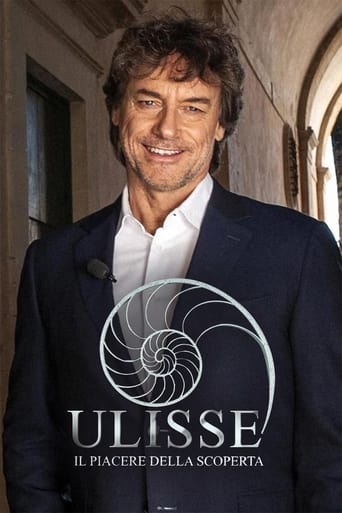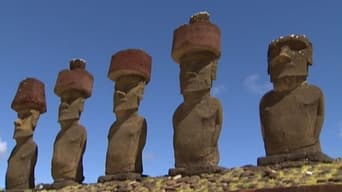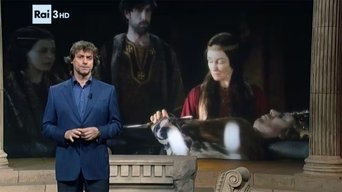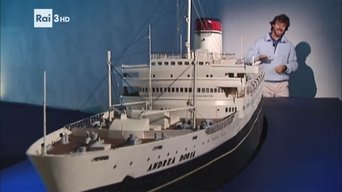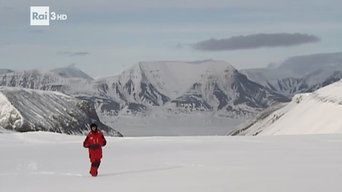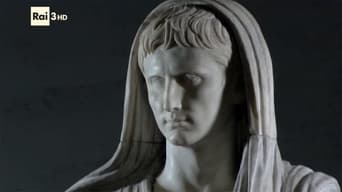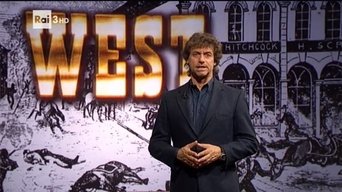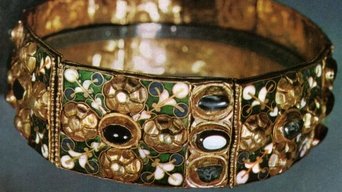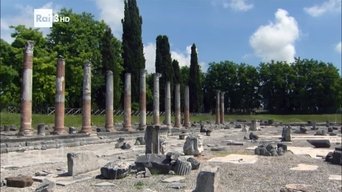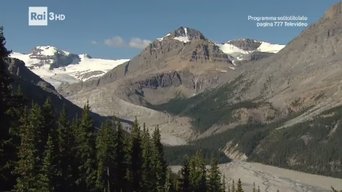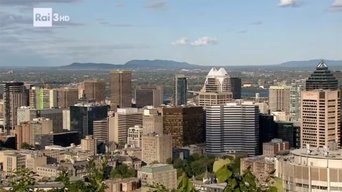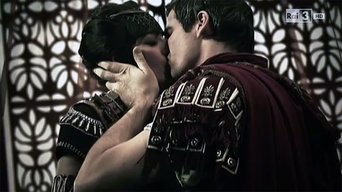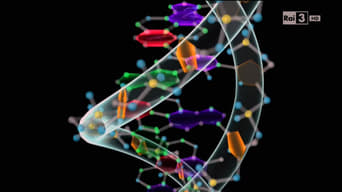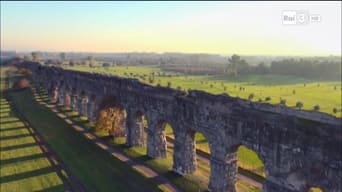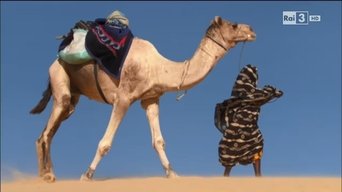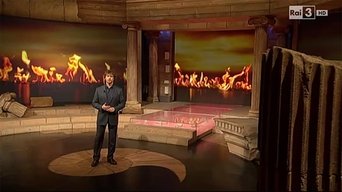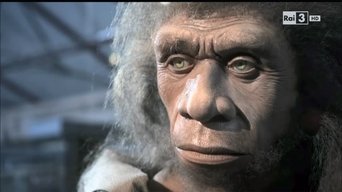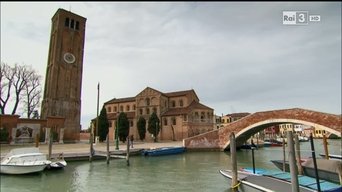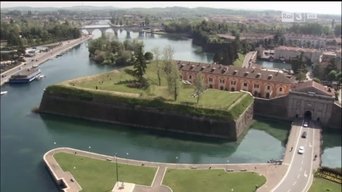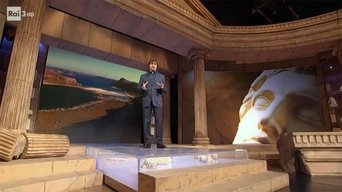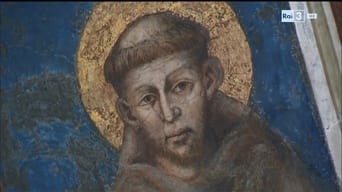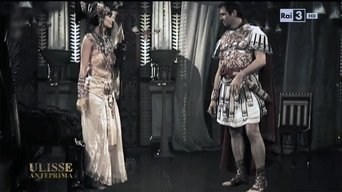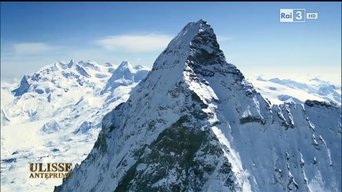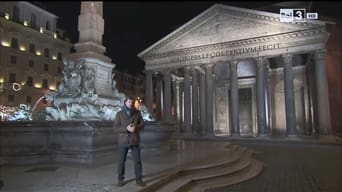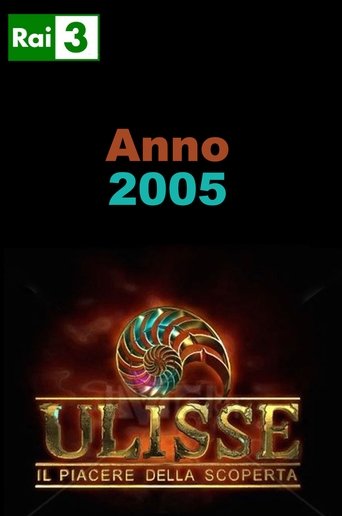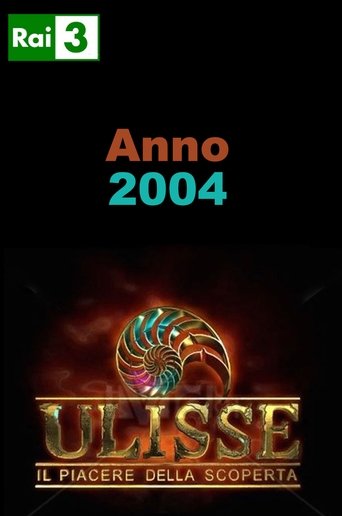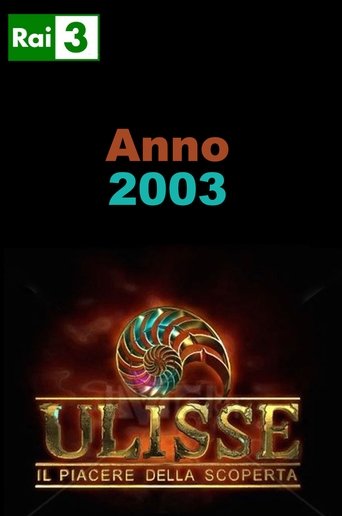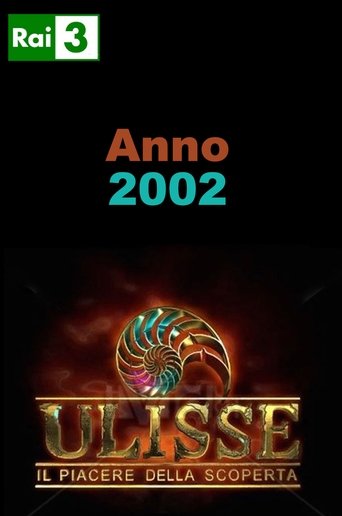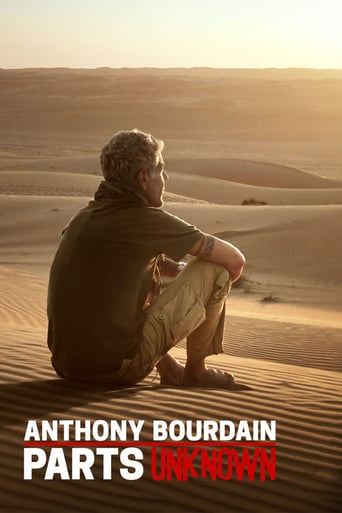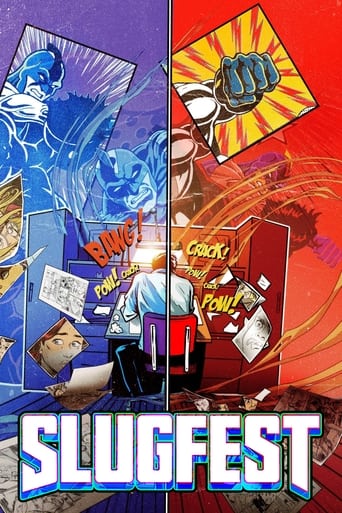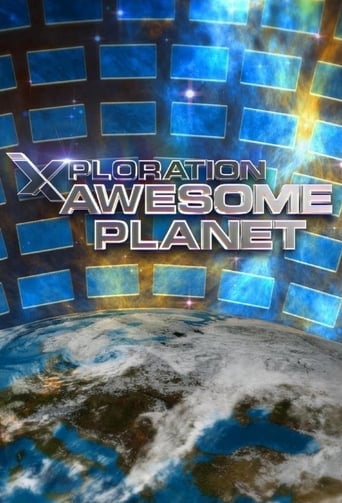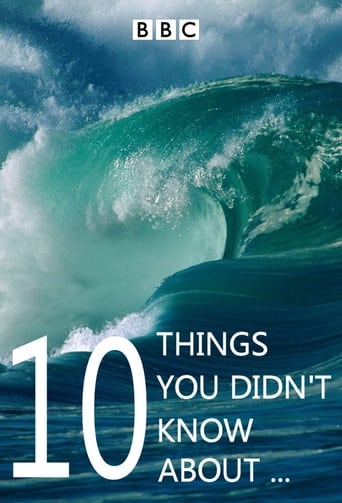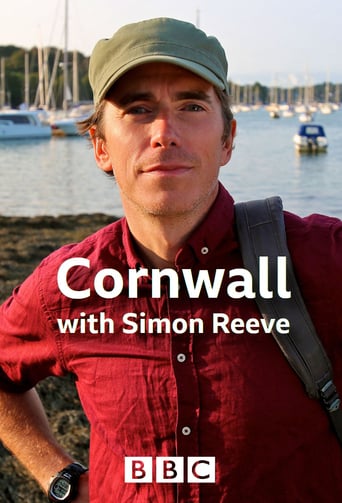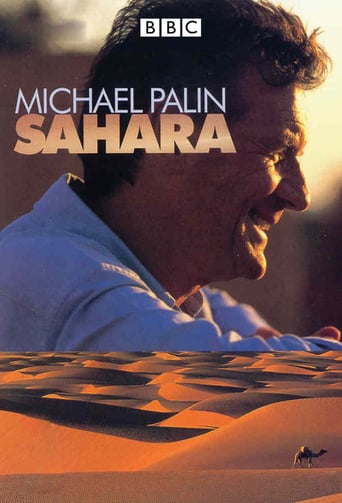Ulisse. Il piacere della scoperta Season 16
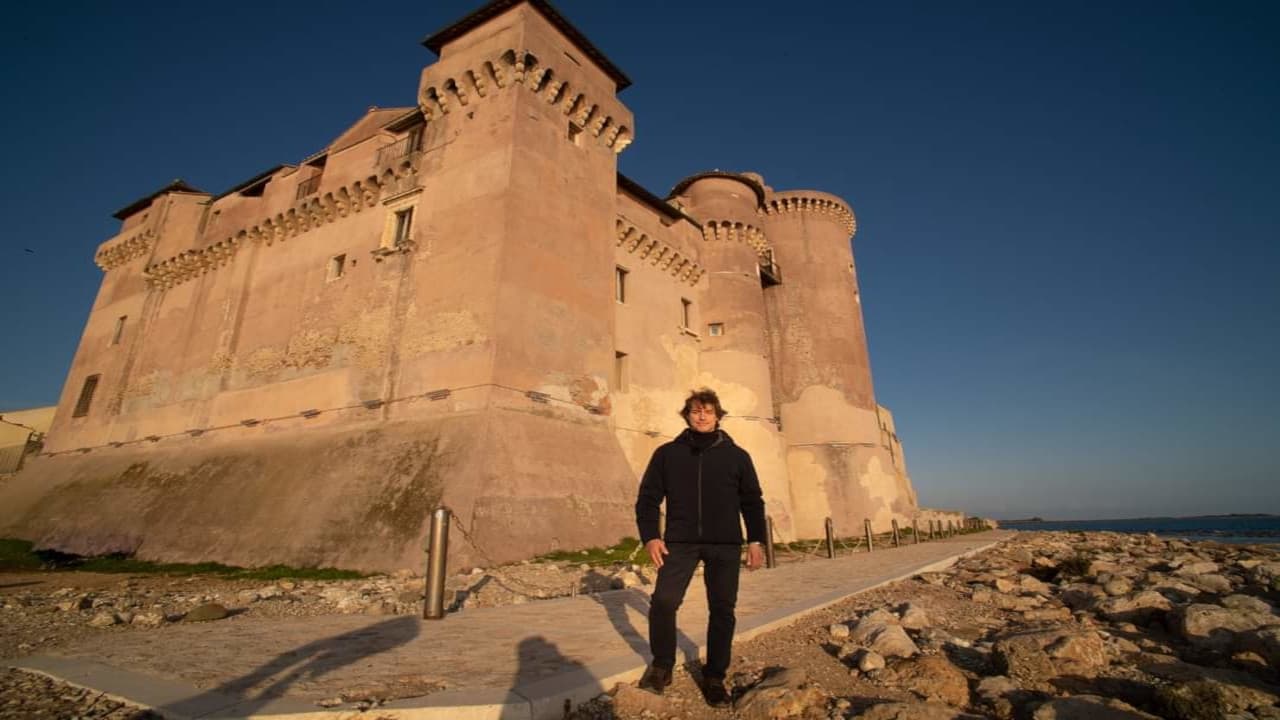
Alberto Angela leads the dissemination program dedicated to history, art and culture. A historical, archaeological, informative story, with the presence of some protagonists of the Italian cultural or artistic scene.
Watch NowWith 30 Day Free Trial!
Ulisse. Il piacere della scoperta
2001 / NR
Alberto Angela leads the dissemination program dedicated to history, art and culture. A historical, archaeological, informative story, with the presence of some protagonists of the Italian cultural or artistic scene.
Watch Trailer
Ulisse. Il piacere della scoperta Season 16 Full Episode Guide
Alberto Angela embarks on a great journey through past civilizations and their enigmas, exploring one of the most extraordinary archaeological sites in the world, in the heart of the Pacific Ocean: Easter Island.
Alberto Angela invites us on an extraordinary journey in the footsteps of a protagonist of history, a man who many consider the father of modern Europe: Charlemagne. We are surprised by the many adventures of the famous ruler, discovering his conquests, his life and his countless loves. Through his events we also discover how daily life took place in the Middle Ages.
Alberto Angela takes us on an extraordinary journey to discover the thousand secrets of Naples, a city that reserves constant surprises. Between a ride in the most beautiful subway in the world or in the old but very efficient funiculars, and one in the extraordinary University Museums, Angela takes us to discover a city that reserves constant surprises. Then the Sansevero Chapel, with the extraordinary statue of the Veiled Christ, commissioned by the famous prince of Sansevero and again in the splendid halls of the Royal Palace to speak of the glorious past of the city. Naples, founded by the Greeks, then "welcomed" the Romans, the Byzantines, the Normans, the Swabians, the Angevins, the Aragonese, and the Bourbons and they all left beautiful traces of their passage both in the urban fabric but also more so in the language and traditions.
This episode retraces the dramatic shipwreck of the largest and most elegant of our transatlantic liners, the Andrea Doria. A story that sixty years later still arouses great emotion throughout Italy. The Andrea Doria was a jewel of our navy, a very luxury ship, considered unsinkable due to the technical innovations with which she had been built. And in these days an exhibition is also inaugurated at the Galata Museo del Mare in Genoa which tells the story of this beautiful and unfortunate ship.
It is surprising how living beings are able to adapt to the most extreme situations and the most inhospitable places on the planet and even manage to live there: from the fiery deserts of Iran, Libya and the United States, up to the Danakil plateaus.
In this episode of "Ulisse, il piacere della scoperta", Alberto Angela tells us the story of Gaio Giulio Cesare Ottaviano, better known as Augusto, the man who changed history, transforming Rome from a Republic into an Empire.
"Ulisse, il piacere della scoperta" brings to life an extraordinary adventure. An adventure that we have all gone through, but which we cannot remember in part, or which we have spent with such enthusiasm that we cannot understand its significance: we are talking about the adventure of growing up, from birth to that shocking period that is 'adolescence.
Alberto Angela takes us on a journey to the Wild West: between the Mississippi River and the Pacific coast where law and right were unable to guarantee protection to the men of that era who had to rely only on their own strength.
Alberto Angela tells us the history and origin of the Metals of Kings: Gold, Silver and Copper. We begin this journey from the Royal Palace of Turin, the Royal Palace of Savoy: it is here that the treasures of the earth were transformed into the treasures of the Kings of Italy, shining and celebrating the magnificence of the Court.
A leap into the past of almost 2000 years that takes us along the borders of the Roman Empire and shows us how the borders were organized on the borders of a boundless empire.
The Rocky Mountains and the parks of Alberta, majestic and uncontaminated landscapes: the second part of Alberto Angela's trip to Canada starts from here. A five thousand kilometer long journey, to discover a country in which the differences between the various ethnic groups are an integral and fundamental part of the nation's identity. Starting from the search for the mythical Northwest Passage, in Drumheller, near Calgary, Alberto Angela takes us to an ancient mine, where Italian emigrants also went to work for decades and where large dinosaur skeletons were found and housed in a museum. everything to visit. In conclusion, the landing in Vancouver, on the Pacific: a city by the sea, famous for its livability, its skyline, the Science Museum and the anthropology museum.
Canada, a journey of five thousand kilometres. Endless forests, lakes, whales, bears, boundless and sparsely inhabited spaces. Canada has nature as its absolute protagonist.
With Alberto Angela we take a journey into a disappeared world that is talked about a lot but little is known: love in the times of the ancient Romans. There are many curiosities to satisfy: how did people kiss 2000 years ago in the alleys of ancient Rome? How did we love 2000 years ago in these houses? Did you bring roses to your girlfriend? What tricks did a woman use to seduce a man? And to cheat on her husband? How did you get married? Were wedding rings used? Is it true that it was easy to get divorced? And then what were the taboos under the covers?
DNA: the most surprising "invention" of nature and evolution, the true director that allows everything that lives to exist. In fact, DNA is the key that opens the doors to our past and allows us to discover a lot about everyone's behavior, on how to protect ourselves with new treatments and medicines, and even on how to unmask a murderer, or manage to reconstruct the appearance of disappeared living beings. Alberto Angela explains why in some areas of the world there are mainly people with light complexions, or almond-shaped eyes, or long-limbed bodies and why, despite all the differences between human beings, it makes no sense to talk about races. And then, diseases, epidemics such as the plague and the exception of individuals with the same DNA: homozygous twins. We also go to ancient cemeteries in search of the deadly microbe responsible for the Black Death to understand if this or other epidemics could return to exterminate humanity.
In this episode, Alberto Angela proposes a singular journey among the hidden surprises of Rome. "The fourth day" is what tourists always miss. Travel agencies reserve a short time for visiting the city, just three days. In this way many wonders of the capital, suggestive and fascinating like the famous ones, remain hidden. Alberto Angela "reveals" the fourth day, so to speak, hunting for the masterpieces hidden for centuries in the eternal city. Password: what's beyond that facade?
We have always been used to thinking of the deserts of our planet as places with an infinite horizon but without life. We set off with Alberto Angela for an extraordinary journey around our planet, a journey between horizons that seem infinite, under a blinding sun, listening to the wind, in the company of the sound of silence. We explore enchanted landscapes where nothing and no one can stand still. It turns out that in the desert everything moves, the sand, the animals, the plants. And especially men.
It is the force of nature par excellence, the source of ancient human wonder: it is fire. Lighting a fire means igniting life, opening up new possibilities and giving birth to new objects. We tell you what are the "children of fire" that we hold in our hands every day: glasses, terracotta objects, rails, tracks, firearms and all those objects that we owe to the industrial revolution.
Today there are over 7 billion people living on earth. There are in fact 7 billion Homo Sapiens, the dominant species on the planet, so much so that we are used to thinking of Earth as our world. Our house. But it wasn't always like this. "Ulisse" takes us back in time hundreds of thousands of years, when the Sapiens were not alone.
One hundred and fifty years ago the annexation of Veneto to the Kingdom of Italy took place. To commemorate the anniversary, "Ulisse" takes a journey to this region, one of the richest in history, culture and art in our country. One of the most productive in Europe.
One hundred and fifty years ago the annexation of Veneto to the Kingdom of Italy took place. To commemorate the anniversary, Ulisse will travel to this region, one of the richest in history, culture and art in our country. One of the most productive in Europe. The journey will be divided into two episodes: in the first of the two episodes, Alberto Angela will start from Lake Garda, the westernmost tip of the region, until reaching the Brenta Riviera with its stupendous villas. The journey will pass through splendid cities: Roman Verona, Palladio's Vicenza and Galileo's places in Padua.
In this episode Alberto Angela takes us to discover one of the most famous and important characters of the ancient world: Alessandro Magno. Our journey begins in Pompei: inside the house of the Faun there is one of the most famous mosaics in history: that of the "Battle of Issus" which illustrates the clash between the army of Alexander the Great and the Persian army of Darius. Venerated by his soldiers for his courage and generosity, but also capable of excesses and uncontrollable outbursts of anger, this young ruler originally from Macedonia, a small kingdom in northern Greece, represented the ideal model for centuries of the great leader, fueling legends and tales from the Mediterranean to India.
The cameras of "Ulisse" guide us in the footsteps of Francis of Assisi. Let's discover the traditional saint, admirably depicted in Giotto's cycle in the basilica of Assisi. But we also try to reveal the more human side of Francesco, a man with the same passions as him, even heated ones. We know his enemies and his friends, such as Santa Chiara, also from Assisi, founder of the female equivalent of the Franciscan order.
Alberto Angela takes us on a grandiose journey into one of the most crucial periods in the history of Rome: the birth of the Empire. Through the images of the film "Il Destino di Roma", we get to know the protagonists of those years more closely. From Bruto and Cassio to Antonio and Cleopatra. It is a historical reconstruction, if you want a film, with real actors, but with places reconstructed on the computer.
Ulisse takes us to high altitude scenarios, among snow-capped peaks, glaciers, green valleys; discovering the Alps, the natural border of our country and the highest mountain range on the European continent. With the three champions, Bianco, Cervino and Monte Rosa. Thanks to spectacular films, we travel through places that we seem to know quite well only to discover, instead, that they are a world full of curiosities and surprises. In fact, every step, peak, valley has a story to tell.
For many centuries, Rome has been a destination for millions of tourists every year. What attracts them are the archaeological remains of the empire, the artistic wonders that have overlapped over the centuries, but also (and above all) its being the center of Christianity. During the episode, Alberto Angela takes a journey to the many places, monuments and buildings that have made the history of Christianity. The journey touches the main Basilicas but also more secluded, hidden corners of the city, where there are important testimonies of the history of the Church.
Free Trial Channels
Seasons


